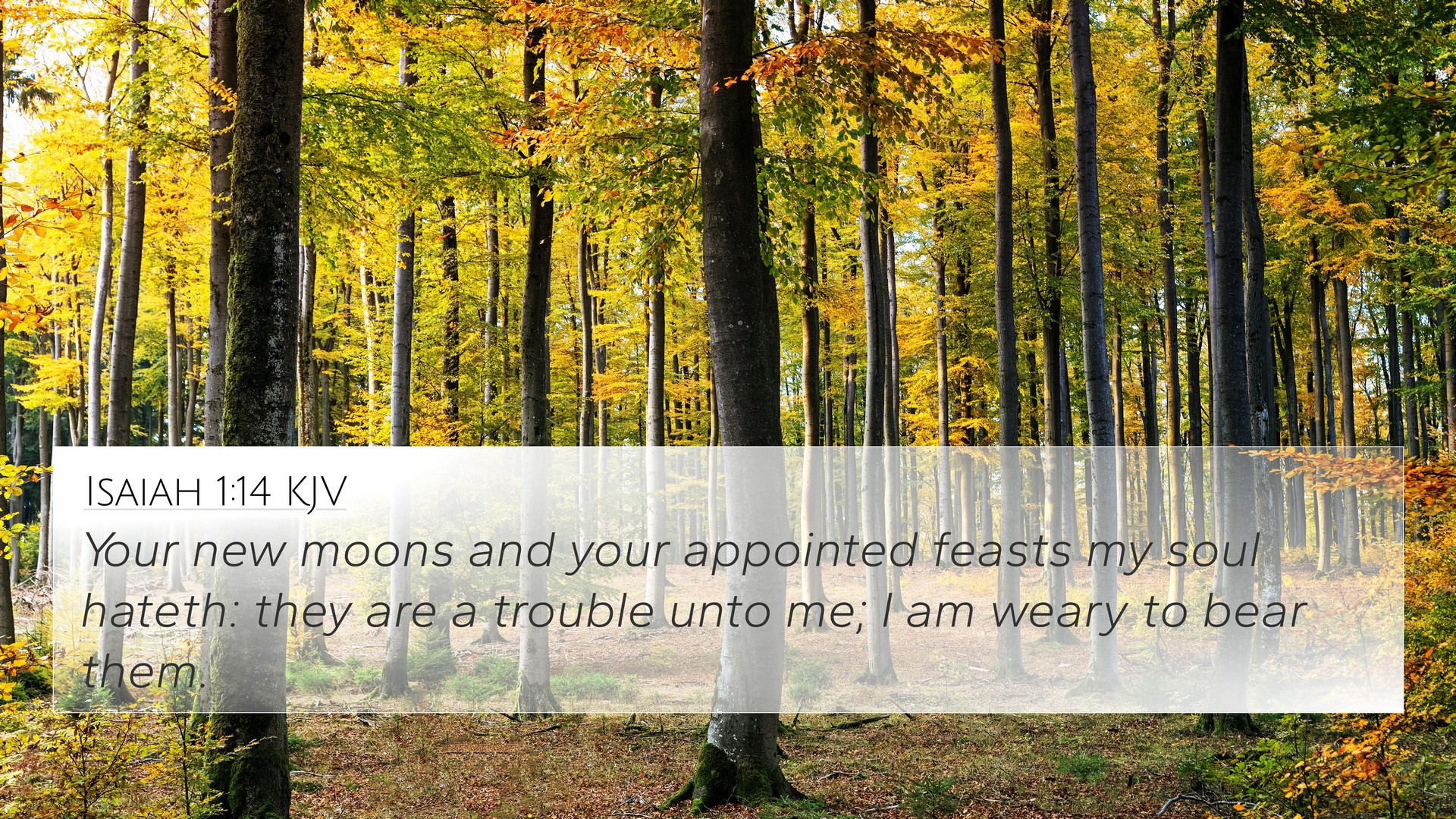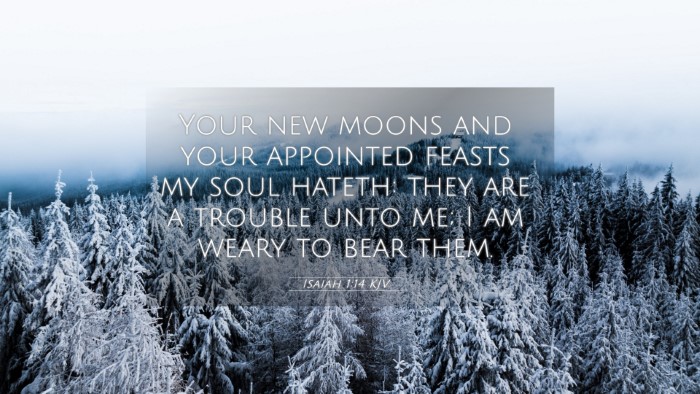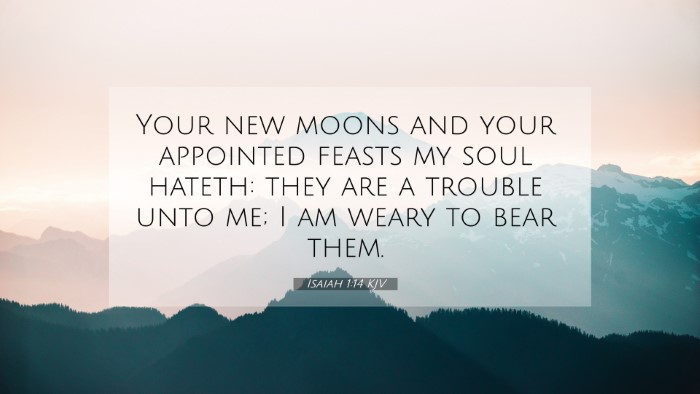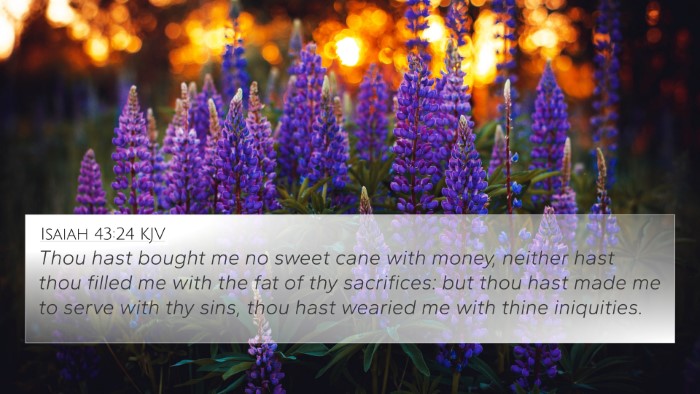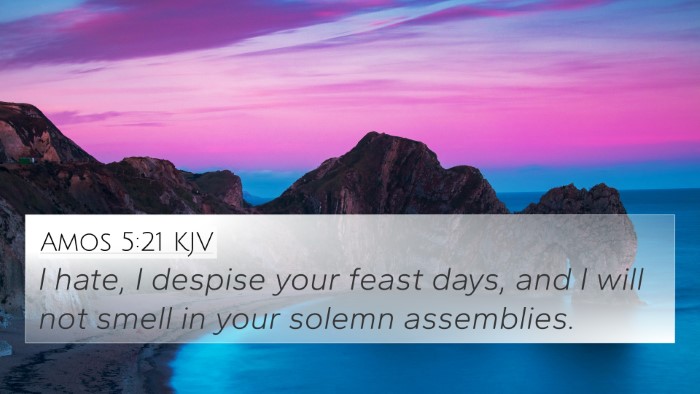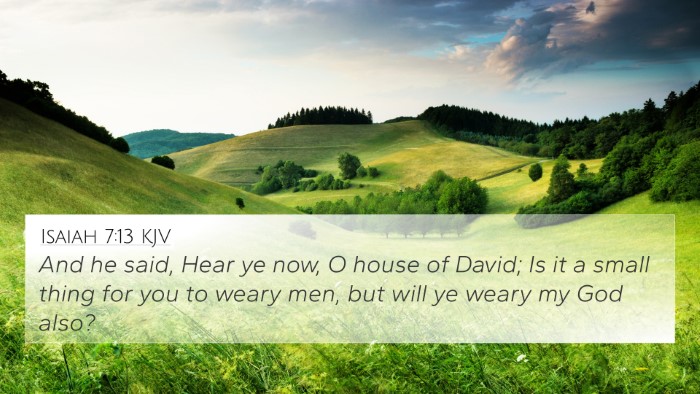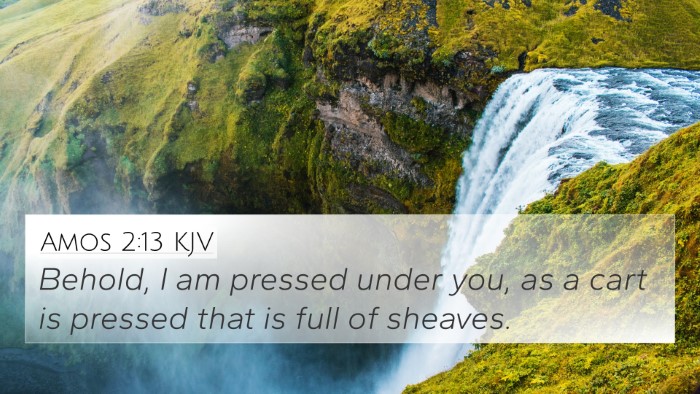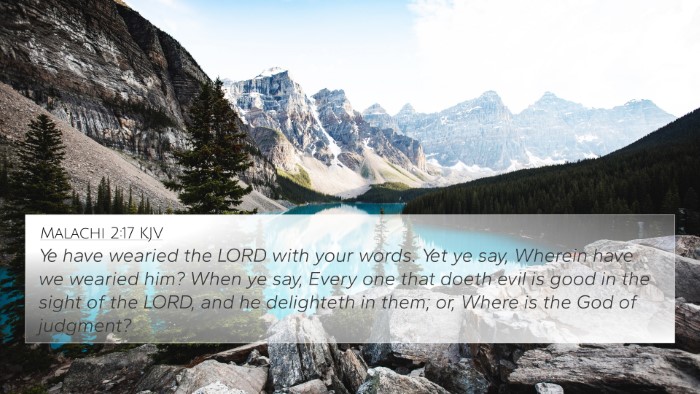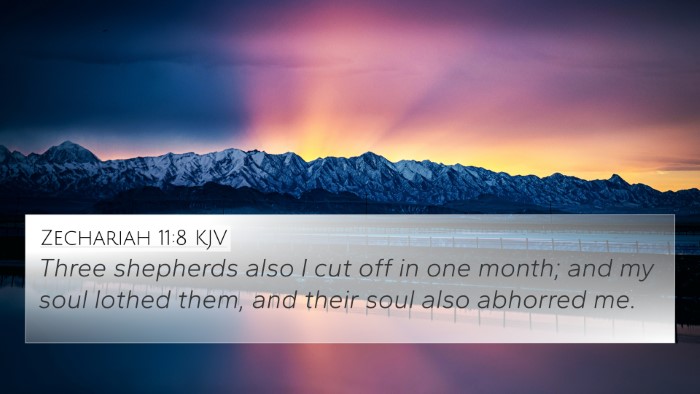Understanding Isaiah 1:14
Isaiah 1:14 states, "Your new moons and your appointed feasts my soul hateth: they are a trouble unto me; I am weary to bear them." This verse carries deep theological implications concerning the practices of worship during the time of the prophet Isaiah. It highlights the tension between outward religious observances and the inward condition of the heart.
The context of this verse reflects God’s displeasure with the Israelites' feasts and rituals, which had become mere formalities devoid of genuine devotion. The connection between the heart’s attitude and public worship practices is evident throughout Scripture, offering insights into the nature of true worship.
Key Themes and Insights
- Rejection of Empty Rituals: Commentaries emphasize that God is not merely concerned with outward observance but with the sincerity of faith and obedience. Matthew Henry notes that rituals become burdensome when they are devoid of heartfelt worship.
- Divine Weariness: The phrase "I am weary to bear them" conveys God's fatigue with insincerity in worship, highlighting the relational aspect of faith. Albert Barnes interprets this as a divine call for authenticity in relationship with God.
- Call to Righteousness: Adam Clarke states that the rejection of these rituals is not an endorsement of abandoning worship but rather a call to align worship with justice and charity, indicating the importance of ethical living alongside religious practices.
- Covenantal Responsibilities: This verse reflects the covenantal relationship between Israel and God, emphasizing that fulfilling the letter of the law is meaningless without a heart that seeks God genuinely.
Bible Verse Cross-References
Understanding Isaiah 1:14 is enriched when cross-referenced with other biblical texts that discuss the themes of true worship and divine displeasure with empty rituals. Below are key verses that offer further insights:
- Amos 5:21-24: "I hate, I despise your feast days, and I will not smell in your solemn assemblies...but let justice roll on like a river." This parallel emphasizes God's call for justice over ritual.
- Micah 6:6-8: "Wherewith shall I come before the Lord and bow myself before the high God?..." These verses echo the idea that God desires moral action over mere rituals.
- Matthew 15:8-9: "This people draweth nigh unto me with their mouth, and honoureth me with their lips; but their heart is far from me." Jesus quotes Isaiah here, reinforcing the theme of inward authenticity.
- Colossians 2:20-23: Paul warns against human traditions and empty practices that do not lead to genuine connection with Christ.
- Hebrews 10:25: "Not forsaking the assembling of ourselves together, as the manner of some is..." indicating the importance of community worship, which should stem from genuine hearts.
- 1 Samuel 15:22: "To obey is better than sacrifice..." showcasing that obedience to God carries more weight than ritualistic offerings.
- Psalm 51:16-17: "For thou desirest not sacrifice; else would I give it: thou delightest not in burnt offering." This emphasizes God’s desire for a broken spirit and contrite heart.
Comparative Bible Verse Analysis
By engaging in comparative Bible verse analysis, we draw connections between Isaiah 1:14 and various New Testament teachings, which similarly condemn superficial worship. This inter-Biblical dialogue can enhance our understanding of God’s unchanging desire for heartfelt sincerity in the worship experience.
Thematic Bible Verse Connections
Through thematic Bible verse connections, we can identify numerous scriptures that resonate with the message of Isaiah 1:14. The consistent biblical theme that emphasizes the significance of inner purity as opposed to external rituals can be seen from the Old Testament to the New Testament.
Instructions for Using Bible Cross-References
To further explore these connections, one can utilize tools for Bible cross-referencing such as a Bible concordance or a Bible cross-reference guide. This allows readers to uncover deeper meanings and themes present within the scriptures.
Bible Reference Resources
Engaging with the Bible reference resources available can greatly benefit individuals seeking understanding in the text. This includes utilizing a Bible chain reference system or exploring comprehensive Bible cross-reference materials.
User Intent and Queries
Many readers may ask, "What verses are related to Isaiah 1:14?" or "How do Isaiah 1:14 and Matthew 15:8 connect?". By exploring the interconnectedness of these scriptures, one can gain a more profound insight into God’s expectation of worship.
Concluding Thoughts
Isaiah 1:14 serves as a powerful reminder that God desires a relationship characterized by genuine worship and moral integrity. Understanding this verse amidst its broader biblical context invites believers to examine their worship practices and ensure their hearts are aligned with God's will.
